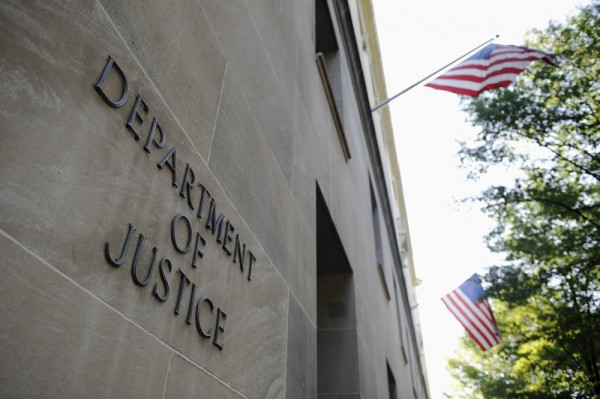
Advertisement
The Justice Department under President Obama has been dominated by Democratic Party hacks and operatives, which has led to no shortage of confusing patterns of behavior, some bordering on the criminal.
Remember “Fast and Furious” – one of the Obama administration’s first scandals involving an operation to allow drug cartel members to buy thousands of guns from U.S. dealers and take them back to Mexico? Though then-Attorney General Eric Holder once claimed to know nothing about the operation, he proceeded to instruct the department to withhold hundreds of documents related to the operation from Congress, for months, and nearly led to Holder being jailed for contempt of court (the House voted to hold him in contempt of Congress in 2012). If an American citizen had trafficked thousands of guns to Mexican cartels, he or she would have been prosecuted to the fullest extent of the law and tossed in some dark federal prison for the better part of their remaining life.
Throughout Obama’s tenure, DoJ has been used often as a political weapon in pursuit of Left-wing causes: The department has not sued Washington and Colorado after voters passed ballot measures allowing citizens to use marijuana recreationally, for example, but went after Arizona prior to the state legislature passing an immigration law that mirrored federal statutes and states whose citizens passed ballot measures defining marriage as only between a man and a woman.
But it hasn’t all been political activism at the Obama Justice Department or, at least, not in the same sense. As noted by The Intercept, while Obama DoJ has made a practice of going after politically incorrect states and individuals, big corporations have gotten a pass for just about anything and everything they’ve done (and we thought Obama hated U.S. corporations).

As The Intercept further noted:
Fewer than one in eight federal agency criminal referrals of corporations led to actual criminal prosecutions between fiscal years 2010 and 2014, according to Justice Department data compiled by the Transactional Records Access Clearinghouse at Syracuse University.
While criminal referrals of individuals resulted in prosecutions at an 82.1 percent clip, corporate prosecutions from referrals only happened at a 12.3 percent rate.”
“This meant that for incoming referrals, prosecution of individual defendants was, on average, nearly seven times more likely than it was for corporations,” said the TRAC report.
Statistics don’t lie
The current report builds upon a previous TRAC study that found a 29 percent drop in corporate criminal prosecutions from 2004 to 2014 – a period of time that included most of the second Bush administration, admittedly, but data that nonetheless appears to demonstrate that corporate crime has become a much lower priority during the Obama years.
Statistics that show a high rejection rate of corporate referrals for white-collar crime (just 7.4 percent of those referrals led to criminal prosecutions) advance the theory that corporations have just not suffered much aggressive law enforcement for the past several years.
The current report, as noted by The Intercept, examines some 1 million criminal referrals over a five-year period filed by 146 of the more than 430 federal agencies, from the Securities and Exchange Commission to the Bureau of Mines. But the agencies cannot prosecute cases on their own; they have to send referrals to one of the 93 U.S. attorney’s offices around the country. Federal prosecutors at the offices then make a determination as to whether they will move forward with a case.
“Some 999,670 of those referrals involved individuals, while only 10,670 referred corporations to the U.S. attorney for possible criminal prosecution. Over 820,000 of the individual criminal referrals were converted into actual prosecutions, compared to just 1,309 of the corporate referrals,” The Intercept reported, adding that prosecutorial data varied widely depending on the individual U.S. attorney’s office.
Some, like those in Wyoming, Oklahoma and North Dakota, had corporate prosecution rates as high as 40 percent or more. Others, however, had far fewer prosecutions. One of the so-called “sheriffs of Wall Street” – the U.S. attorney’s office for the Southern District of New York – were sent 179 criminal referrals from 2010 – 2014, but just 11 cases were brought. The office with the most referrals – the U.S. attorney for New Jersey – had a far lower conversion rate of just 4.5 percent (32 cases out of 707 referrals), The Intercept noted, citing the TRAC report.
Sources:
Submit a correction >>
This article may contain statements that reflect the opinion of the author
Advertisement
Advertisements















